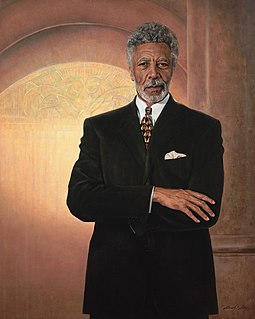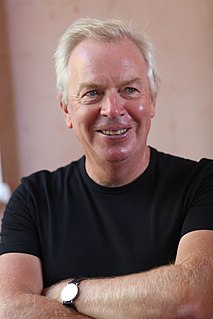A Quote by Noam Chomsky
I do not see how we can rationally oppose high speed rail because of the environmental and other costs without considering the social and human consequences of the radical elimination of transportation that this entails.
Related Quotes
What has to be done today is (1) large-scale conversion (weatherizing , etc.), (2) sharp change in transportation to greater efficiency, like high-speed rail, (3) serious efforts to move to sustainable energy, probably solar in the somewhat longer term, (4) other adjustments that are feasible. If done effectively, that might be enough to stave off disaster. If not, then we can give up the ghost, because there are no alternatives in this world, at least none that I've seen suggested.
But I must explain to you how all this mistaken idea of denouncing pleasure and praising pain was born and I will give you a complete account of the system, and expound the actual teachings of the great explorer of the truth, the master-builder of human happiness. No one rejects, dislikes, or avoids pleasure itself, because it is pleasure, but because those who do not know how to pursue pleasure rationally encounter consequences that are extremely painful.
A cap and trade bill will likely increase the costs of electricity. . . . These costs will be passed on to the consumers. But the issue is, how does it actually...how do we interact in terms with the rest of the world? If other countries don't impose a cost on carbon, then we would be at a disadvantage. . . . We should look at considering duties that would offset that cost.
We are the only major developed nation that isn't investing meaningfully in high-speed rail, and I believe we're making a mistake. Transportation systems that are fast and efficient and environmentally clean are going to enable the formation of these new mega-regions, the heart of the spatial fix. We need to be able to accelerate the movement of people, goods, and services - the very movement of ideas, knowledge, and creativity - between our major population centers. We have to build these links.



































